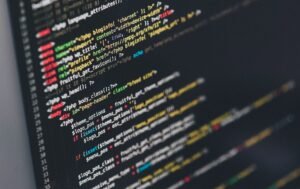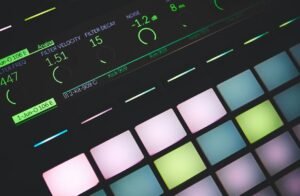AI Movie Background
Artificial Intelligence (AI) has become an increasingly popular theme in Hollywood movies, with filmmakers often exploring the ethical and technological implications of AI. These movies engage audiences in thought-provoking discussions about the future of AI and its impact on society.
Key Takeaways:
- AI-themed movies provoke discussions on the ethical and technological implications of AI.
- These movies explore AI’s impact on society and raise questions about its future.
- Artificial Intelligence in movies often serves as a plot device to drive compelling narratives.
AI-themed movies have gained significant attention in recent years, offering unique perspectives on the potential consequences of developing advanced AI systems. Filmmakers use AI as a plot device to drive compelling narratives, often blurring the line between reality and fiction. These movies provide glimpses into a not-so-distant future where AI plays a central role in human lives, **deliberately challenging our perceptions** of what is possible.
One interesting example is the movie “Ex Machina” (2014), which revolves around a young programmer who is invited to administer the Turing test to an intelligent humanoid robot. The film explores the complexities of AI-human relationships and the boundaries of consciousness and self-awareness. “Ex Machina” raises questions about the **moral responsibilities** we have towards AI creations and the potential dangers of giving them too much power.
AI Movie Categories
AI-themed movies can be broadly categorized into the following genres:
- Sci-fi thrillers: These movies often portray AI as a force that threatens humanity, testing the resilience of human protagonists against superior intelligence. Examples include “The Terminator” (1984) and “The Matrix” (1999).
- A.I. companions: These movies explore the relationship between humans and AI beings designed to serve as companions, assistants, or friends. “Her” (2013) and “Bicentennial Man” (1999) fall into this category.
- Existential dramas: In these movies, AI is used to examine what it means to be human. They raise questions about identity, emotions, and the fragility of the human condition. “Blade Runner” (1982) and “A.I. Artificial Intelligence” (2001) fit into this category.
In addition to these overarching categories, there are numerous other AI-themed movies that explore different aspects of AI, from sentient robots seeking equal rights (“I, Robot” – 2004) to AI-driven virtual realities (“The Lawnmower Man” – 1992).
Impact of AI Movies
AI movies have a profound impact on shaping public perception and understanding of artificial intelligence. These movies not only entertain, but also serve as sources of inspiration for scientists, engineers, and researchers working on real-world AI projects. They stimulate crucial discussions on the ethical and societal implications of AI development.
| Movie | Year | AI Theme |
|---|---|---|
| 2001: A Space Odyssey | 1968 | Existential AI |
| The Terminator | 1984 | Sci-fi Thriller |
| Her | 2013 | A.I. Companions |
One fascinating example is the impact of the movie “2001: A Space Odyssey” (1968) on the AI research community. Director Stanley Kubrick’s envisioning of an advanced AI, HAL 9000, sparked conversations among scientists and engineers, inspiring them to strive for the development of similar artificial intelligence systems depicted in the movie. This demonstrates the profound influence movies can have on real-world technological advancements.
The Future of AI Movies
As AI continues to advance, AI-themed movies will likely explore more intricate and nuanced aspects of artificial intelligence. Future films may delve into topics such as the social implications of AI, the integration of AI into everyday life, and the potential consequences of AI becoming superintelligent.
It is evident that AI movies will remain influential in shaping public discourse on AI technology. They provide platforms for crucial discussions about the ethical, philosophical, and practical challenges that AI presents to humanity.
| Movie | Year | AI Theme |
|---|---|---|
| The Matrix | 1999 | Sci-fi Thriller |
| Blade Runner | 1982 | Existential Drama |
| I, Robot | 2004 | Sentient AI Rights |
AI movies will continue to captivate audiences with their thought-provoking narratives and imaginative portrayals of artificial intelligence. They serve as a powerful medium for exploring the potential benefits and risks associated with AI, and inspire us to reflect upon the challenges and opportunities that lie ahead.

Common Misconceptions
Misconception 1: AI in movies accurately represents real-world AI
Many people believe that the portrayal of AI in movies is an accurate reflection of what AI is like in real life. However, this is far from the truth. AI in movies is often depicted as highly intelligent and capable of human-level thinking and emotions. In reality, AI technology is still in its infancy and has significant limitations.
- Real-world AI is not yet capable of human-level thinking and emotions
- AI in movies often has exaggerated capabilities and powers
- Movies fail to represent the complexity and challenges associated with developing AI
Misconception 2: AI will replace humans in every aspect of life
Another common misconception is that AI will completely replace humans in all aspects of life. While AI has made significant advancements in various fields, it is unlikely to completely replace human skills and expertise. AI is designed to complement human capabilities and act as a tool, rather than a replacement for human intelligence.
- AI is more likely to augment human intelligence than completely replace it
- Humans possess unique qualities like creativity and empathy that are difficult to replicate with AI
- AI is limited by the data it is trained on and lacks human-like intuition
Misconception 3: AI is only about autonomous robots
Many people associate AI solely with autonomous robots like those seen in movies. While these robots are one application of AI, AI is a much broader and diverse field. AI encompasses various technologies and methods used to build intelligent systems, such as machine learning, natural language processing, and computer vision.
- AI includes technologies like machine learning and natural language processing
- AI is used in a wide range of applications, including finance, healthcare, and transportation
- Not all AI applications involve physical robots
Misconception 4: AI is always a threat to humanity
Some people have a misconception that AI is inherently dangerous and poses a threat to humanity. This notion is often fueled by movies that depict AI systems turning against humans. While there are ethical considerations and potential risks associated with AI, these risks can be mitigated through proper regulation and responsible development.
- AI can bring great benefits to society, such as improved healthcare and efficiency
- Regulation and responsible development can help minimize risks associated with AI
- It is humans who ultimately determine how AI is used and its impact on society
Misconception 5: AI algorithms are always unbiased and fair
There is a misconception that AI algorithms are always unbiased and fair because they are based on data and calculations. However, AI algorithms can inherit biases present in the data they are trained on or the preconceptions of their developers. It is crucial to be aware of and address these biases to ensure that AI systems are fair and ethical.
- AI algorithms can perpetuate biases present in the data they are trained on
- Unconscious biases of developers can unintentionally influence AI systems
- Regular audits and diverse perspectives can help identify and mitigate bias in AI

Introduction
The world of movies has witnessed a revolution with the rise of artificial intelligence (AI) in film production. AI has greatly impacted various aspects of movie-making, ranging from scriptwriting and visual effects to audience targeting and marketing strategies. This article explores 10 fascinating examples that highlight the role of AI in the movie industry.
1. AI-Generated Script
Using AI algorithms, the movie “Sunspring” became the first film to be entirely scripted by an artificial intelligence program. The AI analyzed numerous screenplays and generated a unique, albeit surreal, script that was used for the movie.
2. Deepfake Technology
Deepfake technology has allowed filmmakers to seamlessly insert actors’ faces into scenes, often creating uncanny visual illusions. This technique has been notably used in movies like “Forrest Gump” and “Rogue One: A Star Wars Story” to bring deceased actors back to the screen.
3. AI-Enhanced Visual Effects
AI-powered systems have significantly enhanced visual effects in movies. The 2017 film “Blade Runner 2049” employed AI to analyze the original movie’s visual style and generate stunning effects for its sequel.
4. AI-Assisted Editing
AI tools have revolutionized the editing process for filmmakers. Adobe’s Sensei AI, for instance, can analyze footage and suggest the best editing techniques, saving significant time and effort during post-production.
5. AI in Film Marketing
AI algorithms are extensively used to analyze vast amounts of data to predict audience interests and preferences. This allows movie studios to tailor marketing strategies, create targeted advertisements, and generate personalized movie recommendations.
6. Computer-Generated Imagery (CGI)
CGI has drastically evolved with the help of AI techniques. Movies like “Avatar” have pushed the boundaries of visual effects by incorporating AI algorithms to create realistic characters and vibrant imaginary worlds.
7. AI-Generated Soundtracks
AI systems can analyze emotions and moods within a film to create unique musical compositions. The AI-generated soundtrack for the 2019 film “Uncanny Valley” showcases the potential of AI in music composition.
8. AI Predicting Box Office Success
By analyzing various factors such as release date, genre, and actor popularity, AI has been able to accurately predict box office success. This helps movie studios in strategic decision-making and financial planning.
9. AI-Powered Digital Makeup
Using AI algorithms, filmmakers can digitally apply makeup to actors in post-production, altering their appearance without physical applications. This technique has been used in movies like “X-Men” to transform actors into different characters.
10. AI-Driven Movie Recommendations
AI algorithms analyze viewers’ watching habits, preferences, and ratings to recommend movies personalized to individual tastes. Streaming platforms like Netflix and Amazon Prime extensively rely on AI to enhance user experience and engagement.
Conclusion
Artificial intelligence has proved to be a game-changer in the movie industry, reshaping various aspects of film production and consumption. From AI-generated scripts and deepfake technology to AI-assisted editing and predictive analytics for marketing, the potential of AI in movies is vast and ever-expanding. As filmmakers continue to embrace these advancements, we can expect more extraordinary movies in the future, further blurring the line between reality and imagination.
Frequently Asked Questions
What is the AI Movie Background?
The AI Movie Background is an innovative technology that utilizes artificial intelligence to generate realistic and engaging backgrounds for movies. It allows filmmakers to easily create stunning visual environments without the need for complex setups or expensive location scouting.
How does AI Movie Background work?
AI Movie Background uses advanced machine learning algorithms to analyze and understand the content of a scene. It then generates high-quality backgrounds based on this analysis, taking into account factors such as lighting, perspective, and composition.
What are the advantages of using AI Movie Background?
Using AI Movie Background provides several advantages for filmmakers. It saves time and resources by eliminating the need for physical set construction or on-location shooting. Additionally, it allows for greater flexibility in terms of creating different settings and changing them easily during post-production.
Can AI Movie Background replace traditional set design?
While AI Movie Background can offer a cost-effective alternative to traditional set design in certain situations, it does not completely replace it. Traditional set design still plays a crucial role in creating realistic and immersive environments. AI Movie Background can be used to complement and enhance traditional set design, but it cannot fully replicate its craftsmanship.
What types of movies benefit from AI Movie Background?
AI Movie Background is beneficial for a wide range of movie genres, including science fiction, fantasy, historical dramas, and any other genres that rely heavily on visual world-building. It offers filmmakers the ability to create immersive and visually stunning backdrops that enhance the storytelling and overall cinematic experience.
Are there any limitations to using AI Movie Background?
While AI Movie Background is a powerful tool, it does have some limitations. It may not be suitable for complex scenes with intricate details or those requiring specific physical interactions between actors and the environment. Additionally, the quality of the generated backgrounds may vary depending on the quality of the input footage and the training of the AI model.
Can AI Movie Background be used in other forms of media?
Yes, AI Movie Background can be used in other forms of media, such as television shows, animated films, video games, and virtual reality experiences. The technology can be adapted to generate backgrounds for various visual storytelling platforms, offering creative opportunities beyond traditional cinema.
Is AI Movie Background easy to integrate into existing production workflows?
AI Movie Background is designed to be user-friendly and compatible with existing production workflows. Filmmakers can utilize the technology by incorporating it into their post-production process, using it alongside other software and tools commonly used in the industry.
Is AI Movie Background expensive to use?
The cost of using AI Movie Background can vary depending on factors such as the complexity of the scenes and the desired level of detail. However, compared to traditional set construction and on-location shooting, using AI Movie Background can generally be more cost-effective. It eliminates the need for physical resources and can significantly reduce production costs.
Can AI Movie Background be used in real-time applications?
AI Movie Background technology is continuously evolving, and there are ongoing efforts to adapt it for real-time applications. While real-time usage is still in development, advancements in hardware acceleration and machine learning techniques suggest that real-time AI Movie Background solutions will be possible in the near future.




